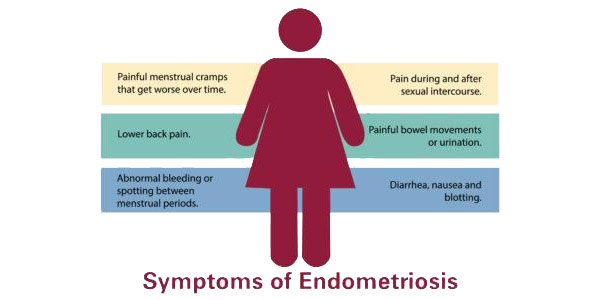Liquid Chlorophyll Safety: Is It Safe To Consume
Oct 23, 2023
A lot of people question me, as a licensed dietitian, about the latest TikTok nutrition fads, from "what I eat in a day" videos to apple cider vinegar. Dropper-dispensing chlorophyll in liquid form is the newest craze in health and beauty products. Many people swear by this vitamin, claiming it helps everything from increasing energy to reducing skin redness to cleaning the body. If you're thinking about giving liquid chlorophyll a shot, here are a few things to keep in mind.
What Is Liquid Chlorophyll, Anyway?
Liquid chlorophyll supplements are generally Chlorophyllin, a semi-synthetic, water-soluble version of chlorophyll, which is a bit of a misnomer. In contrast to chlorophyll, Chlorophyllin is made of chlorophyll bonded to copper rather than magnesium. Chlorophyllin is the most common type of chlorophyll in liquid supplements.
Supplements containing natural chlorophyll can be found in powder or pill form. According to Clairmont, "Chlorophyllin looks to be better absorbed than natural chlorophyll sources, but it's not obvious if we truly need to absorb it any better than we currently do from plants and algae.
Benefits of Liquid Chlorophyll

There are various advantages to ingesting liquid chlorophyll or Chlorophyllin in any form. Even if these claims are true, there isn't enough proof to back them up. Clairmont advises, "instead, treat yourself to the full food source like leafy greens and sea veggies.".
Antiperspirant
Chlorophyll may help reduce body odor, according to some research. For people with trimethylaminuria, in which the body cannot convert trimethylamine into another molecule that does not smell, a 2004 study examined the effects of Chlorophyllin on their ability to eliminate the fishy smell.
Chlorophyllin-treated patients had increased amounts of non-smelling compounds. Chlorophyllin was shown to be "very useful in enhancing the quality of life of persons suffering with TMAU," according to the study's findings. Oral Chlorophyllin was reported to minimize urine and fecal odor in incontinent individuals in other studies from the 1980s.
Wound Healing
According to the Linus Pauling Institute at Oregon State University, doctors in the 1940s and 1950s found that Chlorophyllin had deodorizing benefits on foul-smelling lesions when administered topically. Debridement, or the thorough washing of wounds, was first performed with ointments containing Chlorophyllin to minimize local inflammation and speed healing. Currently, prescriptions for these ointments and sprays are accepted in the United States.
Healing of the Skin
In a tiny 2015 pilot research, 10 individuals with acne and enlarged pores received a topical gel containing sodium copper chlorophyllin. Patient response to the treatment was positive, and statistically significant changes were seen after three weeks. Similarly, in a 2015 trial, 10 individuals with sun-damaged skin were treated with a sodium copper chlorophyllin gel for eight weeks.
Chlorophyll Risks

Liquid chlorophyll poses no serious health hazards. People have used it safely as a dietary supplement for more than half a century. However, some people need to pay attention to their calorie intake. Clairmont claims that long-term supplementation with chlorophyll or chlorophyllin supplements can cause photosensitivity. Photosensitization is a mild side effect when your skin is more sensitive to sunshine.
Additionally, supplementing with chlorophyll and Chlorophyllin may worsen any pre-existing photosensitivity due to other prescription drugs.
Chlorophyll or Chlorophyllin should be avoided by patients using methotrexate, which is used to treat severe psoriasis and malignancies, as well as rheumatoid arthritis. Some researchers believe chlorophyll may slow the clearance of methotrexate.
Chlorophyll In A Liquid Form: Is It Safe?
Despite decades of human usage, scientists at the Linus Pauling Institute at Oregon State University discovered no evidence of hazardous consequences of Chlorophyllin. With caution, Czerwony believes it's fine.
"Do I think it's worth trying? As Czerwony puts it, "no." "Plants require chlorophyll significantly more than we do. It's not essential at all. Even if you'd rather experiment, there is no danger in doing so." However, there are some possible negative consequences. Chlorophyll pills may cause mild stomach or gastrointestinal problems. Another risk is that the stool will be discolored.
Unknown Dosage And Adverse Effects
The lack of study on any supplement implies no information on its effectiveness, the right dose to take, and any negative effects. You may have unpleasant consequences if you ingest too much of particular nutrients. While zinc aids the immune system, too much can cause digestive distress; impair the immune system, and lower "good" HDL cholesterol levels, which protects against heart disease. Another example is antioxidants. In fruits and vegetables, antioxidants are beneficial, but when consumed in supplement form, they may raise the risk of disease.
Chlorophyll Supplement alternatives
Czerwony thinks there's a more natural approach to improving your chlorophyll intake than buying supplement bottles. Get your cart into the produce section and load it with fresh greens. Green vegetables, including spinach, kale, and peas, are high in chlorophyll. Added benefits include fiber, vitamins, and other minerals not found in chlorophyll-only products.





